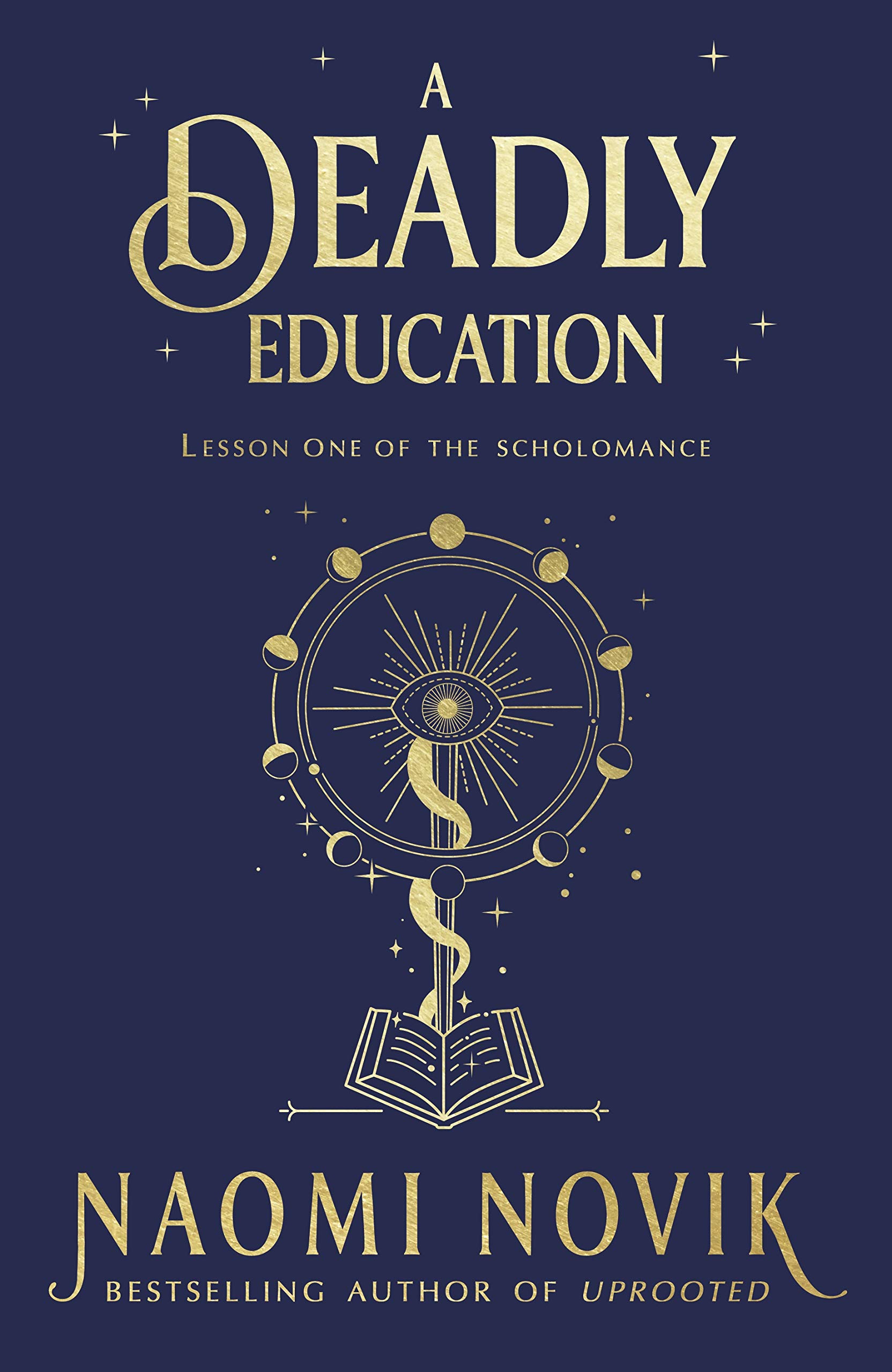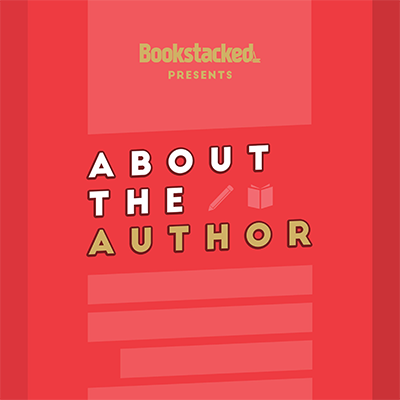Two days after finishing A Deadly Education, I am still struggling to understand exactly how I felt about this book.
From the Blurb:
Enter a school of magic unlike any you have ever encountered. There are no teachers, no holidays, friendships are purely strategic, and the odds of survival are never equal. Once you’re inside, there are only two ways out: you graduate or you die.
El Higgins is uniquely prepared for the school’s many dangers. She may be without allies, but she possesses a dark power strong enough to level mountains and wipe out untold millions — never mind easily destroy the countless monsters that prowl the school.
Except, she might accidentally kill all the other students, too. So El is trying her hardest not to use it…that is, unless she has no other choice.
I was excited to read A Deadly Education from the second I first heard about it, and even more so upon seeing the gorgeous cover. But, though I enjoyed the story, when I think about it more critically I was left a little disappointed.
There are no doubts that Naomi Novik receives an enormous number of points for originality. A Deadly Education is set in a magic school called the Scholomance, where wizard children go to learn magic. Only, instead of their education being all fun and games as we are used to with this type of fantasy novel, the school is deadly and delights in eating up those that fall by the wayside.
I was absolutely fascinated by this concept. I thought it unique and refreshing and regardless of what the rest of this review will discuss, I am sure I’ll be reading the rest of the series for that alone.
Our main character, El Higgins, is rude, sometimes arrogant, and absolutely hilarious. There were numerous times when I laughed out loud at her quips and attitude. I can see where some readers may find her difficult to connect with, however I completely fell for her. Her voice tells the story, with all its snarky, sarcastic humour that is probably what kept me reading.
Not only this, but her character development was lovely to see. She may not be able to leave the sharpness and rudeness behind (for those who deserve it), but she really comes out of her shell when she begins to develop relationships with some of her classmates. Seeing this insanely loyal, kind girl underneath the arrogance was wonderful, and made me like her even more.
The character development for others, however, was lacking. Orion Lake is the superstar of the school — and El’s nemesis. That is, until she realises he is just as lonely as her, and they form a frenemy-esque relationship. Orion is clearly a complex character, and yet he doesn’t appear to change throughout the novel. By the end, he is just as shy and frustratingly (for El) stupid as he was at the beginning. I couldn’t help but wish the careful character arc El had been given had been bestowed upon him as well.
All good fantasy stories have an intriguing, complex world behind them, and A Deadly Education is no different. There is a need for description, naturally, but I found in this instance the info-dumps were quite heavy-handed. As I said, I was fascinated by the world and the Scholomance, but the frequency and length of the info-dumps, paired with some questionable pacing, often left me feeling rushed and a little bewildered when it came to learning vital information about the world.
Generally, the story felt very told, rather than shown. From El’s apparently world-destroying, chaotic evil power, to feelings of certain characters, I had a hard time truly believing it. As a reader, you are left to rely a lot on El’s, or the author’s, word, rather than seeing it for yourself. I think this is perhaps what let down A Deadly Education most, as it seeps into every aspect of the novel.
Similarly, I was never surprised by the plot. It was exciting and beautiful and dark, but there were no twists and turns to truly wow me. The ending nicely sets up a sequel, but even that was foreshadowed none-too-subtly. The fast-pace and lack of twistiness brought the ending about rather abruptly. I remember turning the page surprised that the story had finished.
Overall, I was a bit disappointed with A Deadly Education — and disappointed that I was disappointed. There is an awful lot of potential in the story (and an awful lot of readers that have given very high ratings), so I was upset that I wasn’t as blown away as I wanted to be.
Having said all that, A Deadly Education has a lot going for it, and there were certainly many aspects I enjoyed and even loved. I wouldn’t be surprised if you see me reviewing the rest of the trilogy!









Personally, I enjoyed the “info dumps” as much as the story – as they were a huge part of it. In fact, my concern is that there will be fewer of them in subsequent books since much of the relevant backstory is already described. Further, I would say Orion’s arc takes place in the backstory. While it is tidy for every character to conveniently have an arc in the same time frame, I would say that’s actually less believable. Orion’s arc ended the moment he found a friend in El. His backstory, describing the arc, is given in one of the info dumps, but it seems described well enough.
Also, there were many moments where the author demonstrated that El’s take on the situation was flawed. It seems an intentional point of relying on El’s word is to set up those flaws – not so much as surprises to the reader, but so that the reader can pick up on clues El isn’t (with good reason given for why El isn’t picking up on them), thus describing how something obvious can be a surprise to El (like Orion dating her). It only stands to reason that her impression of the world is likely also flawed. I could be giving too much (or at least the wrong type of) credit to the writer, but I’ve long been fascinated by the idea of a skilled writer writing a book entirely in the third person omniscient perspective and then rewriting it from the first person. Such an endeavor would give the author clues to include and interpret wrongly in a way consistent to the character that the reader can still pick up on if they are clever and don’t buy into the narrator’s bias. Not saying that’s what the author is doing but there are hints that that’s what was done, and I enjoy it. El is always spot on when it comes to the malicious intent of others, but is just as often completely misreads the situation when anyone demonstrates a shred of humanity.
There were plot holes, though. The biggest one is why the Maw Mouth went by Todd’s room but didn’t just stop there and feed on the seniors. They were supposedly the most delicious anyway, according to the first chapter (though later in the book it also says seniors are the most “stale,” which seems a contradiction). Indeed, by looking at the map of the Scholomance, the Maw Mouth would have had a much easier time just climbing the steps to get to the freshman dorms (even assuming there’s an explanation for why it preferred freshman over seniors). Whereas going through the library vent is almost mazelike. Also, the apparently infinite mana of the enclaves makes the whole concept of “strict mana” a bit superfluous. Why would they cheat even a little? And where does the mana even come from if they spend almost no time generating any of it then use it up on the way out? Maybe that will be explained but for now there seems to be a math issue – pulling malia from the heat in the air, for example, shouldn’t yield much, and as such the whole place should be freezing if everyone does it. Also, the fact that the graduation horde wasn’t eating itself all this while seems unlikely, considering how eager they are to eat each others’ corpses. And Orion taking credit for the Grogler. And Aadhya concluding that El might have killed a maw-mouth – no matter her reasoning everyone assumes it’s impossible. And Aadhya seeing the huge cache of radiant mind crystals but not having the same question as Orion had when he saw just two (it’s later revealed that she definitely heard of El’s mom). Plus some other minor ones I’m forgetting.. I can come up with answers for these on my own but that’s like writing fan fiction to complete someone else’s story. And considering the fact that I’d have really preferred this book to have gone on for another thousand pages, I wouldn’t have objected to the answers being inferred somewhere.